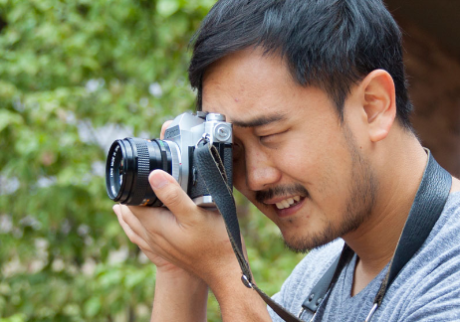Why study photography?
Parkland's photography program prepares students for employment as studio photographers, photographer

assistants, lab/print specialists, freelance photographers, studio managers, and small business owners.
At Parkland, you'll have the advantage of small class sizes, taught by master faculty—never teaching assistants. Your success is our priority.
Classes
Classes cover the fundamentals of photography through studio photography; historical processes through digital photography; the development of a photography portfolio; and the business of photography.
Digital Photography (ART 128, 228): Introductory and advanced courses covering the equipment, selection, use, function, and art of digital photography.
Film Photography/Advanced Film Photography (ART 129, 229): Students learn basic and advanced techniques of the photographic process and practical use of a 35mm camera including exposure and developing and printing in a darkroom.
Studio Photography (ART 130): Students learn advanced skills in lighting and exposure evaluation with hands-on experience working in a studio environment on still life, portrait, and commercial work.
History of Photography (ART 164) Students learn the history of photography in art and society from discovery to present.
Portfolio Seminar (COM 293) Students fine-tune and edit their portfolios, receive feedback from industry professionals, and develop effective self-promotional pieces including internet presence and resumes that can be used to begin a career or transfer.
Video Production I (COM 144) Students gain hands-on experience producing video in a multi-camera television studio including studio production techniques, video and audio equipment operation, and crew positions and responsibilities.
Video Production II (COM 145) Hands-on experience producing videos from concept through post-production emphasizing television digital field production including non-linear digital editing.
Will my classes transfer?
Parkland College classes with an even middle digit (such as ENG 101, MAT 128, and BIO 141) are accepted for transfer as general education classes, major courses, or electives as determined by the transfer institution.
For more information about transferring, speak with an academic advisor and visit the Parkland Course Matrix.
Learn more about how these classes fit into a transfer degree or the general education core curriculum (GECC).
Curriculum